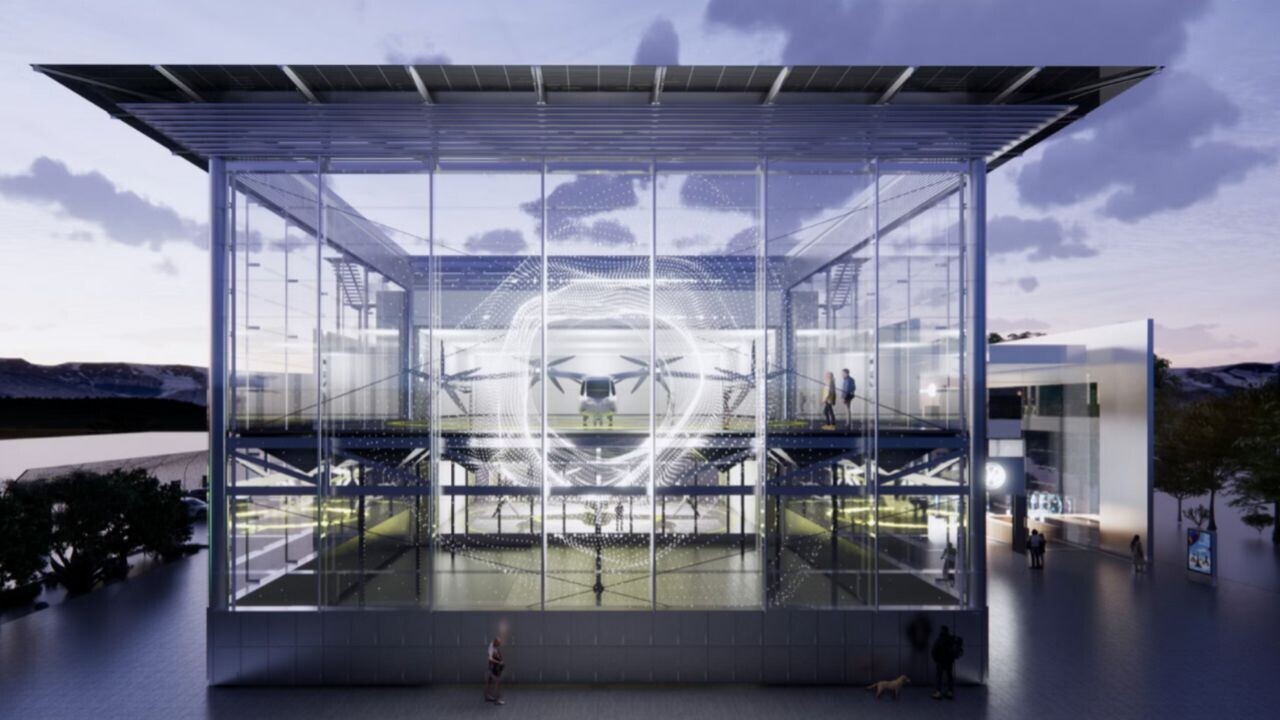
In collaboration with LG, UK startup Urban-Air Port has unveiled the AirOne vertiport, which merges robotics with AI integrated systems — a world first, according to the company.
Vertiports promise to facilitate advanced urban air mobility, intended for vehicles such as drones and electric vertical take-off and landing (eVTOL) aircraft.
Urban-Air Port first demostrated AirOne in 2022 in the UK. Now, the vertiport is commercially available.
Through the partnership with LG, the startup has designed a vertiport that combines physical infrastructure with digital solutions across ground operations.

AirOne features modulars stations with integrated digital systems. It leverages the startup’s Vertical Airfield robotics technology, which the company says allows for up to 80% smaller sites, up to 50% reduction in installation costs, as well as a smaller environmental footprint.
The vertiport will also use LG’s data-driven management systems and AI-powered technologies. These can enable a range of services, spanning from biometric check-in and interactive lounges to EV charging hubs and a digital ecosystem for commercial services on site.
Founded in 2019, Urban-Air Port targets four markets: passenger air taxis, cargo logistics, defence, and disaster emergency management and security. The company plans to deliver over 200 vertiports across the globe in the next five years.
The case for vertiports (and air taxis)
Vertiport infrastructure is integral to enabling the rollout of air taxis, or (e)VTOLs — which are appealing for several reasons.
They don’t need runaways to operate and they can navigate small spaces, presenting a potential alternative for urban transport. Electric VTOLs, in particular, can also help reduce carbon emissions in cities.
The UK’s aviation regulator has been investigating ways to adopt the technology and enable future operations. The EU has also published its own vertiport design guidelines. Meanwhile, a barge on the Seine will provide a temporary air taxi launch point during the Paris Olympics.
Nevertheless, challenges such as safety, cost, and VTOL standardisation still persist. It remains to be seen whether AirOne will pave the way forward.
Get the TNW newsletter
Get the most important tech news in your inbox each week.




